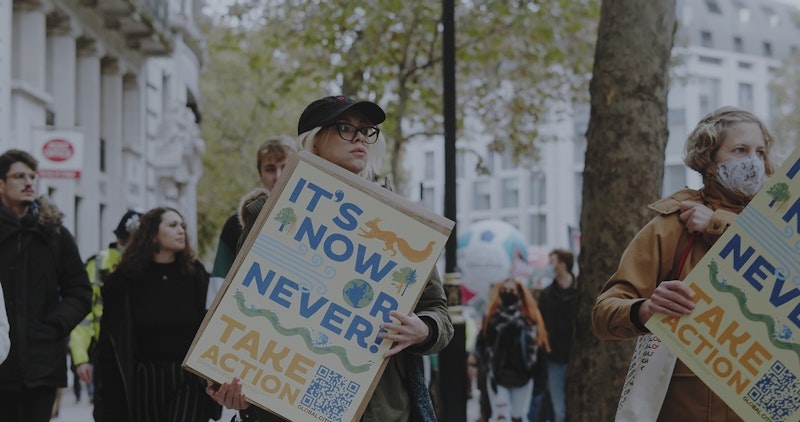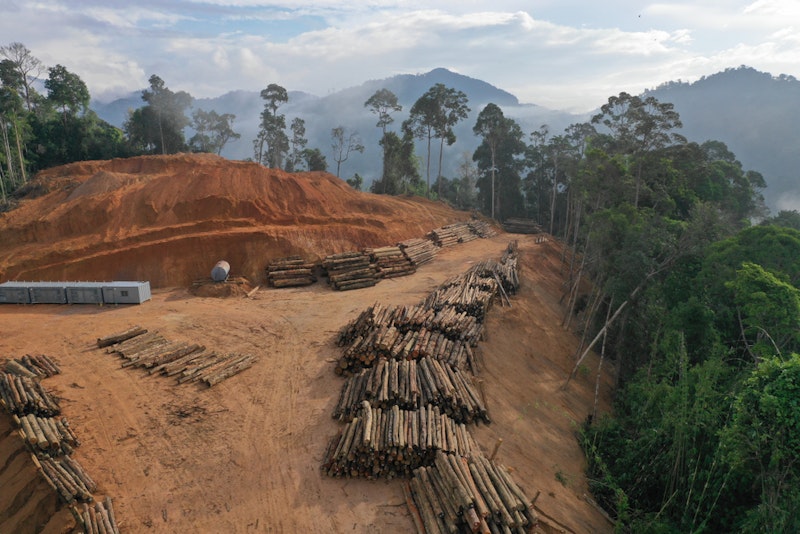In the News
Timbaaaaaa!!! (Despite the fact we are supposed to be 'saving' the planet!)

27th June 2023
COP26 saw world leaders pledging to end deforestation in an attempt to fight climate change and protect biodiversity. But last year global tree loss surged, with an area of tropical rainforest the size of Switzerland felled - in fact 11 football pitches of forest were lost every minute in 2022, with Brazil topping the destructive league.
So it seems that that political pledge to end deforestation has gone out of the window.

A key part of COP26 was the Glasgow Declaration - over 100 world leaders signed this agreement to "halt and reverse forest loss and land degradation by 2030". The agreement was signed after a previous one from 2014 had failed. Even former Brazilian president Bolsonaro signed it, despite relaxing environmental laws in his own country to allow more exploitation of the Amazon rainforest. But then he is the reason that after years of decreasing rates of deforestation in Brazil, rates have rocketed recently. So if he is not taking the pledge seriously, it stands to reason that there will be other world leaders who are equally dismissive of the pledges they have publicly made.
Why is it so vital to protect the rainforest?
Well, biodiversity for one!
But tropical rainforests are critical in the fight against climate change as they absorb huge amounts of greenhouse gases - clearing or burning these older forests sees that stored carbon released to the atmosphere, driving up temperatures around the world. So, an essential ecosystem service! And it's not as simple as just planting trees elsewhere because forests take decades to develop.
And worryingly, the rate of deforestation increased by 10% between 2021 and 2022 - around 4 million hectares. With this mass felling releasing a similar amount of carbon dioxide to that released by India each year!
Of course the figures vary widely across the globe - Brazil's loss has actually increased by 14%, but within the state of Amazonas the rate has actually doubled. So at the moment the global target of zero deforestation by 2030 seems totally unattainable.
So, is it game over?
Of course not! Over the last couple of decades Indonesia and Malaysia have seen huge increases in deforestation - yet both countries have managed to significantly reduce their forest loss. Indonesia recorded an all-time high rate of deforestation in 2016, but has now reduced its forest loss more than any other country - this has been helped by a ban on logging in new palm oil plantations, and increased monitoring. It's a similar story in Malaysia. And of course it helps when TNCs start to show some responsibility - with many palm oil giants producing under no deforestation, no peatland and no exploitation commitments.

You might also like
Norwegian government using unusual methods to deter migrants
15th November 2015

Cyclone Winston and the issues facing Fiji one week on
29th February 2016

Changing Places at the Railway Station
26th August 2017
Plastic waste to be tackled by the UK
19th December 2017

University Guide 2019: Rankings for Geography
29th May 2018
Dealing with UK plastic
3rd January 2019

Arctic wildfires
27th July 2019